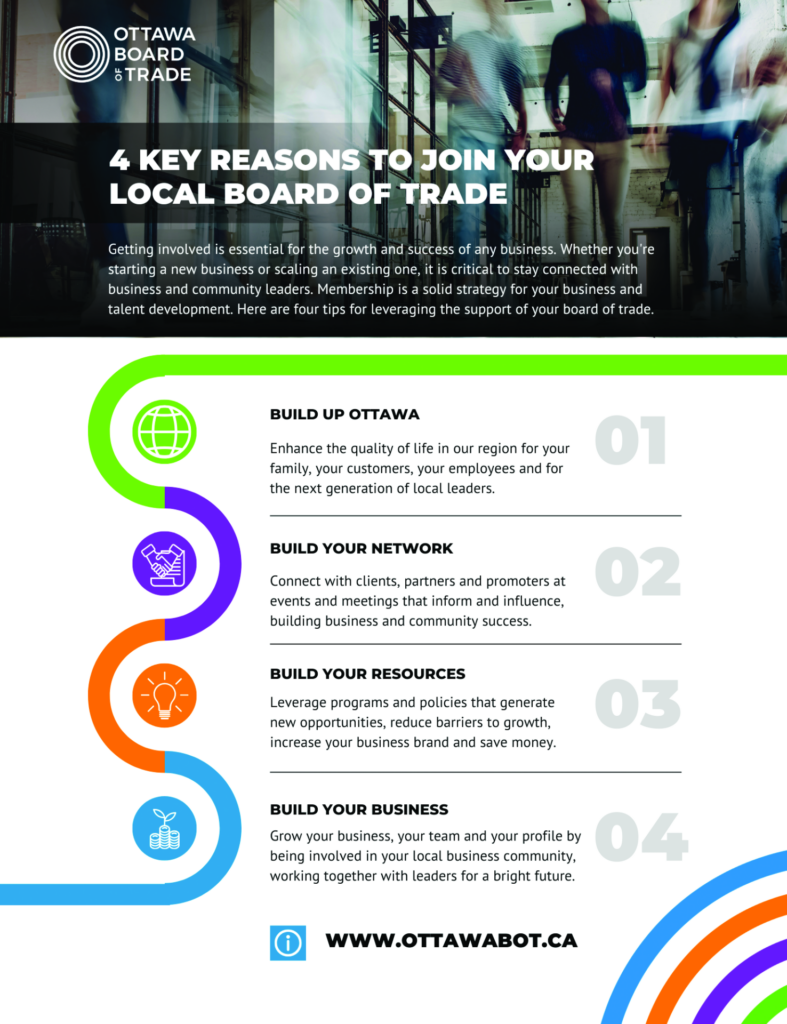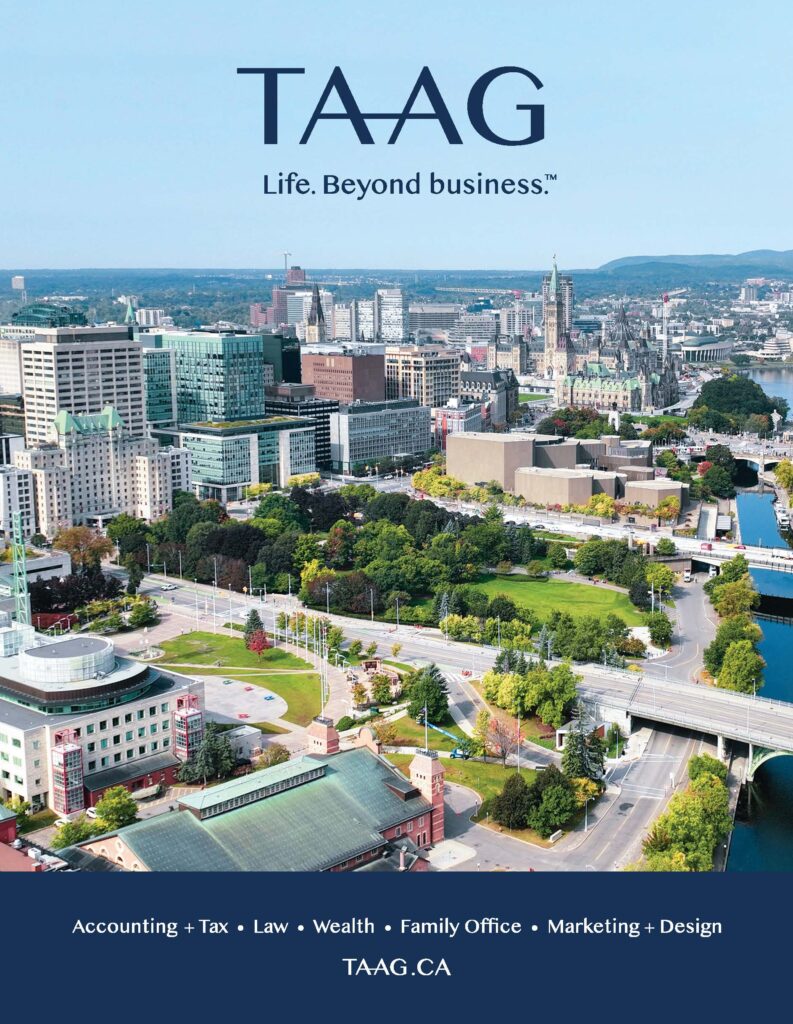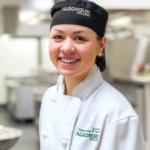A Spirit of Innovation and Accommodation
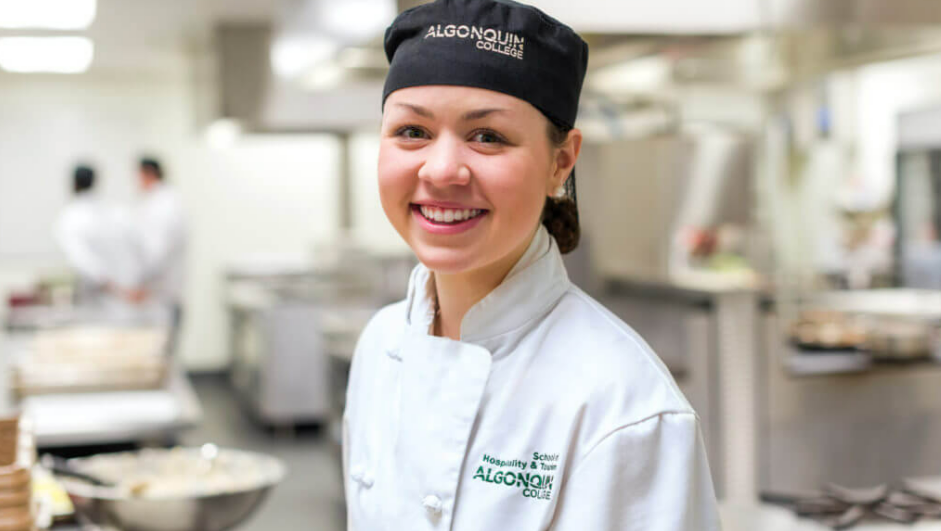
EVERY MONTH INDUSTRY leaders, recruiters and HR of finding qualified individuals to fill longstanding vacancies. Despite their best efforts, however, many organizations are continuing to come up empty-handed.
The decentralization of industry and diverging fields of work further complicate this challenge by requiring qualified workers
to have niche skills and a specialized education.
As a leading Canadian post-secondary institution, Algonquin College is focused on addressing these challenges by assuring
that the talent pipeline meets the current needs of employers. Through innovative programming and a learner-driven
sensibility, the College’s leadership team is shaping learners into skilled workers with the qualifications required to be successful industry professionals in emerging fields of all sizes.
Algonquin College culinary students are not only chefs but scientists — learning how to preserve and process raw commodities into healthy, safe and appealing food through chemistry, biochemistry, and microbiology. Similarly, engineering students are learning more than just the physics of a suspension bridge; studying sophisticated automation and robotic technology geared toward today’s workplace and consumer.
Senior Vice President Academic, Dr. Chris Janzen said Algonquin College’s programs are really what set the institution apart:
“Algonquin College’s leadership in program innovation means students leave our campuses ready to take on new and emerging roles in Canada’s evolving labour force.”
Algonquin College was one of the first institutions of its kind in North America to provide hands-on undergraduate degrees in which learners receive university-level credentials while working in an immersive environment. These specialized programs allow learners to acquire both practical and theoretical knowledge that will help them excel in their chosen industry. Currently, Algonquin College offers 15 degree-level programs in a variety of fields, including culinary arts, engineering and skilled trades.
AT THE INTERSECTION OF CULINARY & SCIENCE
Maya Bisnath, a student in the Bachelor of Culinary Arts and Food Science program, shared how beneficial the pairing of theoretical and practical learning has been and will be to her future success in the field of culinary and food science.
“The Bachelor of Culinary Arts and Food Science is practically designed and prepares students through technical skills and extensive health and safety training, including obtaining the Food Handler’s Certificate,” said Bisnath.
Bisnath also commented on the opportunity for professional relationship building and application of practical and theoretical learning in the program’s final years.
“I am really looking forward to our co-op placements in the later years of the program, as the relationships and experiences are invaluable in preparing for a career in the field. In addition to our food labs, we also have chemistry labs and the hands-on experience for both the culinary side and the food science side which will be incredibly useful for jobs in food development,” added Bisnath.
The Bachelor of Culinary Arts and Food Science program provides students with the skills and knowledge necessary to work in a variety of roles within the food service industry such as product development, quality assurance and food production management. Graduates of the program bridge the gap between the culinary world and food science industry.
Cory Haskins, Academic Chair, School of Hospitality and Tourism, spoke to how this program exemplifies the College’s leadership in cutting-edge programming.
“This program is the first of its kind in Ontario and was created to meet the needs of an evolving industry,” said Haskins.
But the needs of the industry are not the only thing that is top of mind.
“The needs of our learners have been a primary focus in the creation of this bachelor’s degree and its individual courses. All of the classes were developed with a subject matter expert in collaboration with an Algonquin College curriculum specialist, ensuring we create accessible and sustainable learning environments,” added Haskins.
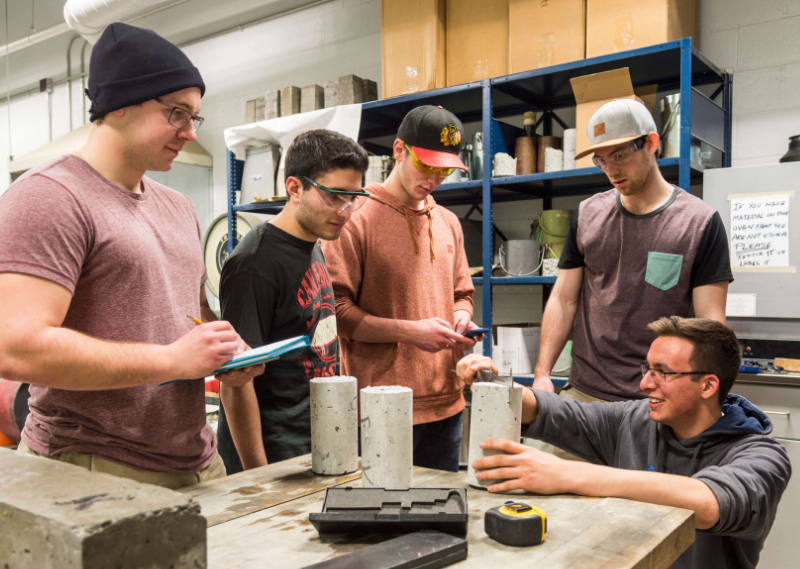
ENGINEERING EDUCATION FOR AN AUTOMATED WORLD
Algonquin College’s Bachelor of Engineering (Automation and Robotics) program is yet another way that the College is showcasing its learner-driven sensibility and innovation. The program’s first cohort is slated to graduate in Spring 2023 with applied research and design skills that are unique to the future of engineering technology.
“As our communication and information technologies advance, manufacturing and production spaces become increasingly automated, networked and digitized. There is anticipation that future engineers will need an in-depth understanding of these technologies, and as such, the Bachelor of Engineering (Automation and Robotics) program teaches those fundamentals that you might not otherwise see in a traditional engineering program,” explained Raymond Greiss, Professor, Mechanical and Transportation Technology.
The Bachelor of Engineering (Automation and Robotics) program embodies the Algonquin College spirit of innovation
and accommodation — especially in relation to the program’s applied projects. Towards the end of the program, students will take on a comprehensive eight-month capstone project related to accessibility in the community.
“I am hopeful that our students will demonstrate not just their technical expertise, but also the humanitarian benefit of engineering in our society. As our industry and society evolve technologically, we hope to inform our graduates of their responsibility as future engineers to harness these technologies for the benefit of all,” said Greiss.
And learners seem to be responding to this hands-on and forward-thinking approach.
“I believe obtaining a bachelor’s degree at a college sets me apart because of the practical nature of college courses. I feel very comfortable around the lab equipment and with existing hands-on experience I’ve felt comfortable learning new equipment in my
co-op position as well,” shared Bachelor of Engineering student, Jaxson Payment.
The program has also been actively working to adapt its course material to industry needs. Thanks to data gathered in 2019 from learners, faculty and industry council, modification has been made to the computer programming curriculum to match evolving knowledge requirements.
“Algonquin College has been an amazing school for this program. I’ve always felt like they are giving us all the resources necessary for our studies and the labs are well equipped for our projects. Being in the National Capital Region there are also plenty of co-op opportunities in the area,” said Payment.
Currently the program is seeking accreditation from Engineers Canada which would provide graduates with eligibility to seek licensure as a Professional Engineer (P.Eng.) — another way the program is hoping to better serve future learners and employers.

MAKING BUSINESS BETTER & FUTURES BRIGHTER
When it comes to serving learners, Algonquin College has always been a leader. Since 1967, the College’s skilled trades and technology programs have been transforming hopes and dreams into lifelong success. Now, 55 years later, Algonquin College continues to innovate its skilled trades and technology programs by offering upskilling and theoretical opportunities to hone specialized skills.
The Bachelor of Business Administration (Trade Management) offers the opportunity for tradespeople to advance their organization to subject matter experts are born,” added Gamble.
And new ideas are what Algonquin College is all about.
“Algonquin College provides something a little bit extra in its learning because it’s applied. In the case of these programs, Algonquin College is infusing two elements, practical and theoretical. That kind of innovation takes leadership and courage, and it’s impressive to me and I think that it’s impressive to students as well to see an institution taking a forward-thinking approach,” said Ron Gerold, Principal at Group G, and Bachelor of Culinary Arts and Food Science Program Advisory Committee Chair.
As a leader in post-secondary education, Algonquin College is proud to foster a learner-driven community in which individuals from all backgrounds, skill levels and walks of life have the opportunity to transform their hopes and dreams into lifelong success thanks to innovative programming and accommodative learning.
“From online programing to trades and other educational opportunities that provide advanced certification, diploma and degree options, students are not only met where they are on their learning journey but can also choose the post-secondary path most suitable to their needs and future working environment,” Dr. Janzen also noted.
Algonquin College graduates leave their studies with the same leadership, innovation and accommodation mindset that guided them along their way — moving on to be global leaders, movers and shakers.















